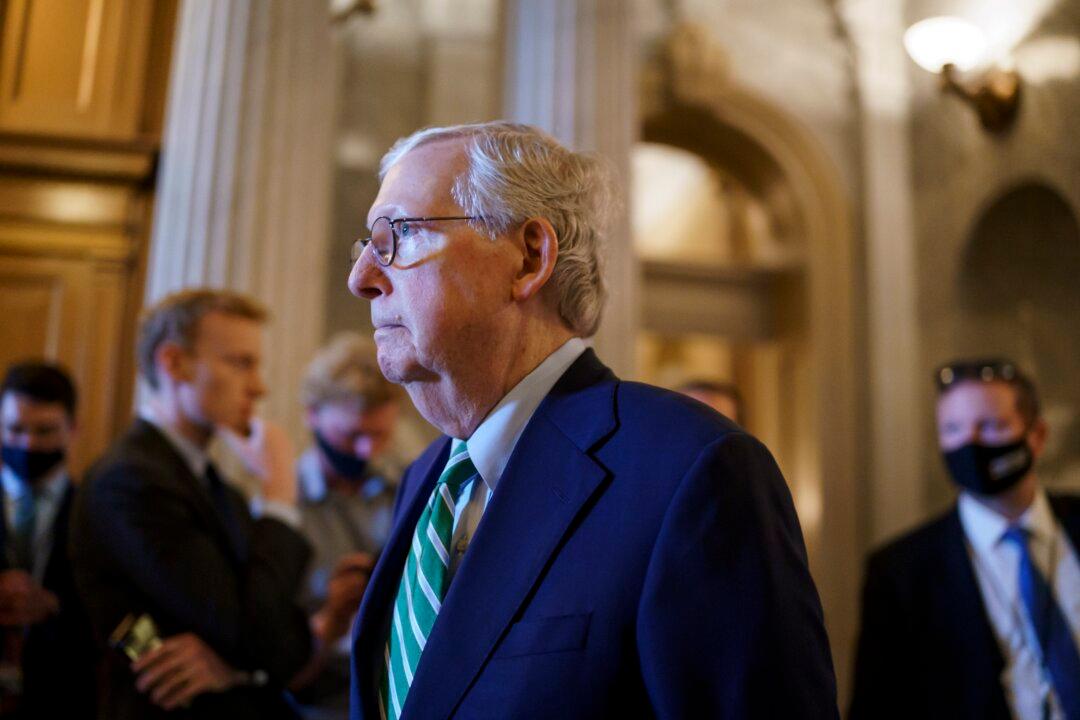Senate Minority Leader Mitch McConnell (R-Ky.) on Wednesday announced the GOP has its demands for Congress on future government spending bills.
“When it comes to floor consideration, we cannot and will not start planting individual trees before we have bipartisan consensus on the shape of the forest,” McConnell said during a speech on the Senate floor, coming about two months before the Senate’s deadline to fund the government to avoid a partial shutdown.





